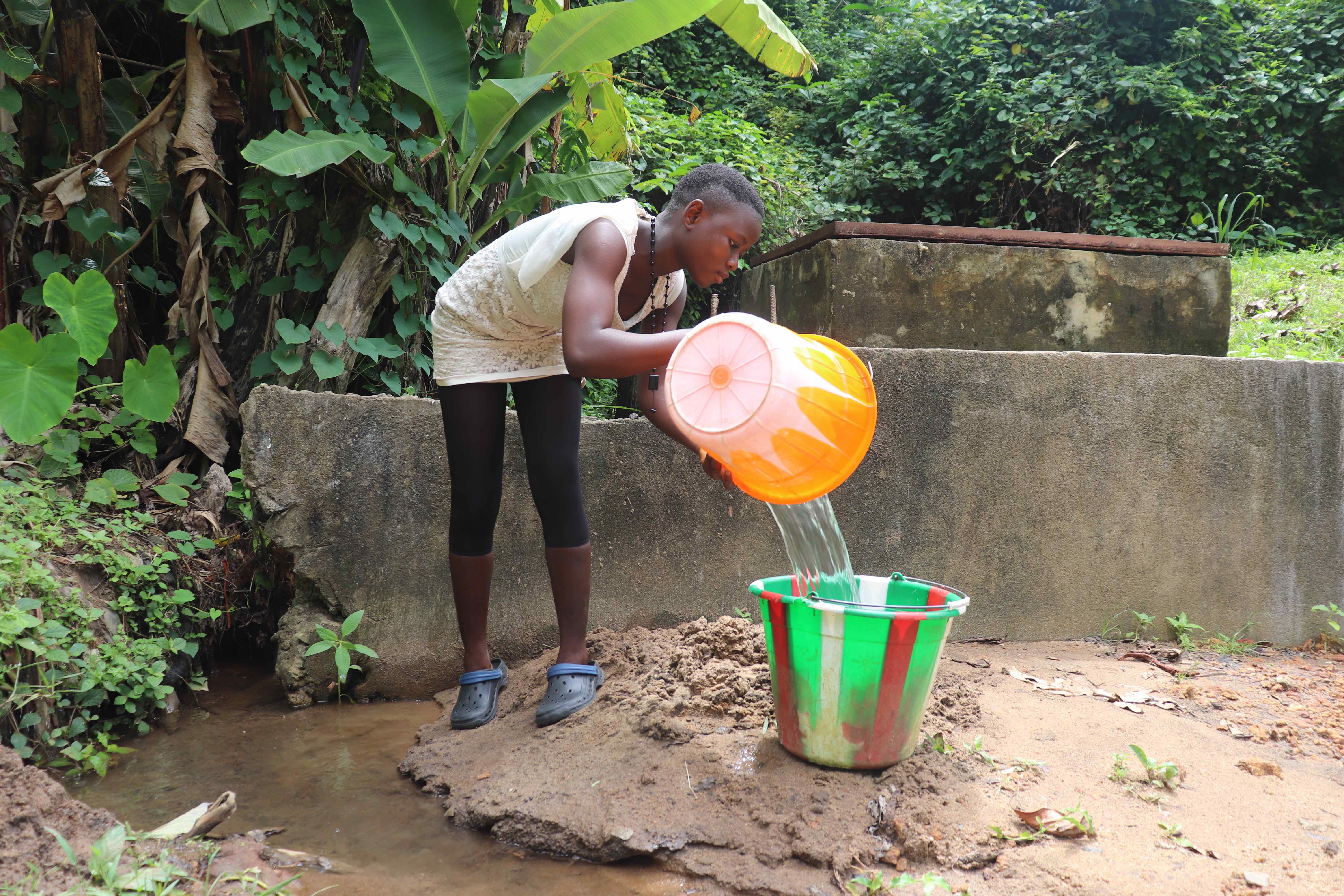Six hundred people live side by side in peace and harmony without discrimination in the community of Benkeh. Churches and learning institutions sponsored by both Muslims and Christians lend opportunities for practicing their unity in this community where fishing and agriculture are the primary sources of livelihood.
Water for this community has been a challenge for a long time since they have no water source of their own. Currently, adults and children must cross a dangerous road to access water wells in neighboring communities.
Rugiatu Adama Conteh (in the photo below), a retired nurse, now produces ginger beer to sell. "The shortage of water has caused part of [my] income generation to stop until there is available safe and clean water. My caretaker has young children that fetch water for her, and my biggest fear is when they go to fetch water late in the evening, [there is] no telling when an argument or fight will break out."

The nearby water points are struggling with overcrowding because they cannot provide enough water to meet the demand. As a result, people find water from open, contaminated water sources so they do not have to fight crowds and experience long delays.
Aminata S. (collecting water in the photo below), a 15-year-old student in the community, shared, "It is never easy to fetch water from both water wells (in the nearby communities) because they are always crowded. Along with the crowds come arguments and fights, some going as far as involving the parents."

Aminata described how these challenges impact her schooling. "During school hours, I am late most of the time. There is never a time a person can visit the water point without crowds. I find myself spending more time fetching water than I do with my studies. The result is a drop in my overall school performance."
What we can do:
New Well
Where we will be drilling is centrally located and will relieve many people of the long journey to fetch water and the challenge of accessing clean water.
Our team will drive over the LS200 mud rotary drill rig and set up camp for a couple of nights. Once the well is drilled to a sufficient water column, it will be cased, developed, and then tested. If these tests are positive, our mechanics will install a new India Mark II pump.
By drilling this borehole, Benkeh and the surrounding community will be provided with plenty of accessible, clean drinking water.
Training
There will be hygiene and sanitation training sessions offered for three days in a row.
Community members will learn how to make a hands-free handwashing station called the "tippy-tap." We will use these tippy taps for handwashing demonstrations and will also teach about other tools like dish racks and the importance of properly penning in animals. We will highlight the need to keep restrooms clean, among many other topics.
This training will also strengthen a water user committee that will manage and maintain this new well. They will enforce proper behavior and report to us whenever they need our help in solving a serious problem, like a pump breakdown.

 Borehole Well and Hand Pump
Borehole Well and Hand Pump
 Rehabilitation Project
Rehabilitation Project














